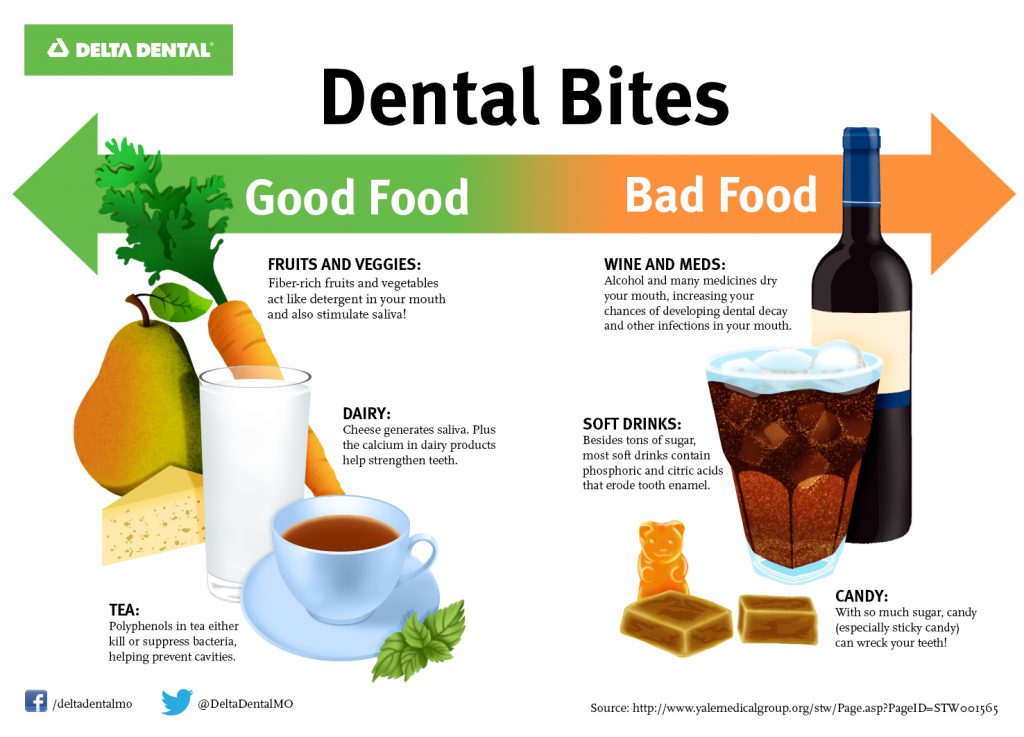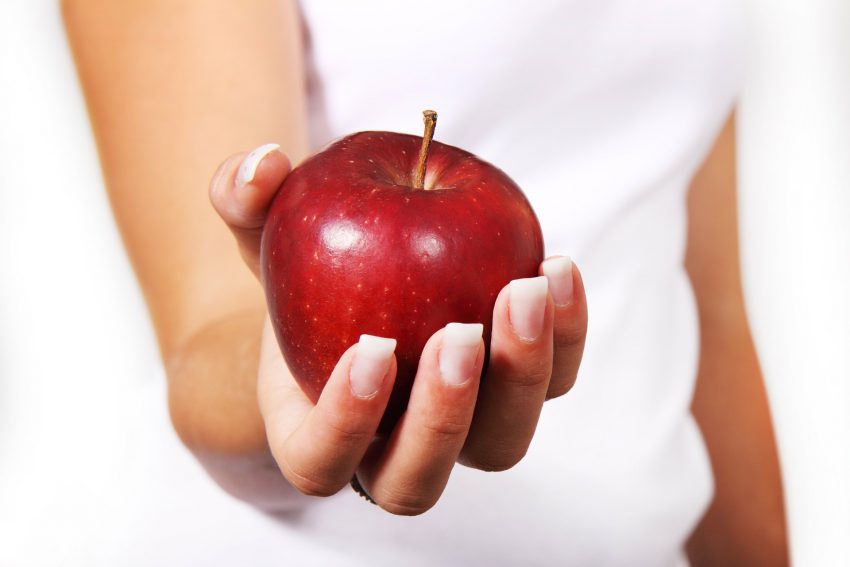Your mouth, teeth, tongue, and gums more than just tools for eating. They’re essential for biting, tasting, chewing, and swallowing. In fact, your mouth is your body’s initial point of contact with the nutrients you consume.
What you put in your mouth impacts not only your general health but also that of your teeth and gums. If your nutrition is poor, the first signs you see will show up in your mouth.
Dental Warriors: Foods that Help to Fight Decay
Some of the food you eat can invite tooth decay, but there are others that help to combat plaque build-up and keep your teeth and gums healthy. These are the type of foods that you should include in your dietary plans:
- Fibre-rich fruits and vegetables help stimulate saliva flow, clean plaque from teeth, and freshen your breath. They also contain vitamin C which is important for healthy gums, as well as vitamin A which plays a key role in building tooth enamel.
- Calcium-rich dairy products help prevent tooth decay and protect your teeth from acids that cause the decay while building tooth enamel on the spot. If you’re lactose intolerant, you can try calcium-fortified juice, soy milk or other calcium-rich foods.
- Sugarless chewing gum help to rinse the harmful acid off your teeth after meals and snacks. Go for sugarless gum that contains xylitol, which has been shown to prevent cavities by inhibiting the growth of certain oral bacteria.
- Compounds in green and black teas interact with plaque to either kill or suppress the bacteria in the mouth and prevent them from growing or producing tooth-attacking acid. This can prevent cavities and reduce the chances of developing gum disease.
- Omega-3 power in fish and flaxseeds are effective anti-inflammatory nutrients that provide resistance towards inflammation and infection and may also translate to resistance towards gum disease.
- Water helps to rinse sugars and acids from your mouth. If the water is fluoridated, even better! Fluoride is a naturally-occurring mineral which helps to prevent and reverse tooth decay. It also helps to re-mineralise tooth surfaces and stops cavities from forming.

Dental Villains: Foods to Avoid
You probably have already heard the lectures your mother gives you for eating too many candies and chocolates, but mothers are always right. These sweet treats aren’t good for your teeth and there’s more (some of them may even surprise you!):
- Sweets, candies and chocolates are loaded with sugar, which increases the acid levels from bacteria in your mouth. And these saccharine pleasures pose the biggest threat, since they stick to your teeth, making it hard for saliva to wash them away.
- Starchy, refined carbohydrates like chips, bread, pasta or crackers can be as harmful to your teeth as candy. Bacteria feed on sugar from starches, and the more refined it is, the more likely it will raise the acid levels in the mouth.
- Carbonated soft drinks and sports drinks contain high amounts of sugar which can harm your teeth. If you think diet sodas are a safer alternative to quench your thirst, think again. Diet sodas contain phosphorous and carbonation that erode the enamel on your teeth, causing them to become stained and brown.
- Sugary breakfast cereals have sugar and starch, which are likely to get stuck in plaque between your teeth.
- Fruit juice have acids and sugar that can cause problems for your teeth, worse if they have additional sugar added to them! So, if fruit juices are a part of your daily diet, you might want to use a straw to minimise contact with your teeth.
Eating well can go a long way in maintaining dental health as well as your overall health but what you eat can also contribute to better oral health or tooth decay. Continue to brush and floss twice daily, and regularly checking in with your dental professional, and you’re all set.
